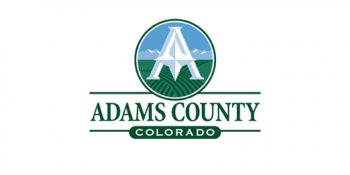|
FORT COLLINS — #SaveTheElephants has become a cause célèbre in recent years. But for Colorado State University’s George Wittemyer, an associate professor in the Department of Fish, Wildlife and Conservation Biology, studying elephants and the effects of poaching on them started when he was an undergraduate at Colorado College in the 1990s.
Wittemyer is now a world-renowned expert on elephants. He was the lead author of a landmark study published in 2014 that found an estimated 100,000 elephants in Africa were killed for their ivory between 2010 and 2012.
The majestic animals, which Wittemyer describes as one of the most iconic species on the planet, are killed for the ivory in their tusks and teeth. “It’s conspicuous consumption, a demonstration of wealth or art,” he said. “The art is beautiful, but it’s really not necessary in any way. The amount of disruption poaching causes to elephants is a disaster. They are highly social animals, with roles in their societies that progress with age. Killing for ivory removes the oldest individuals in the population, disrupting their populations in many ways. It’s really terrible what is happening to the species.”
He was part of a team that reported last year that it will take almost a century for forest elephants to recover from intense poaching because they are one of the slowest-producing mammals in the world. He also collaborated with Shifra Goldenberg, who has a doctorate in ecology from CSU, on a study that concluded that despite poaching, elephants’ social networks are holding steady.
Wittemyer said that as much as possible, he tries to find the upbeat angles in his research. “We can focus on the tragic side of this, because it’s a seriously tragic story,” he said. “But we can also focus on the positive and the resilient story, too. It helps keep me sane.”
Study abroad leads to renowned career
As a child growing up in Portland, Oregon, Wittemyer read a lot about Canada and Alaska, and he was interested in wildlife. He thought his work would one day be focused on conservation efforts in North America.
While an undergraduate, he studied abroad in Tanzania, and connected with researchers and organizations studying elephants. He became hooked on the topic, and the continent.
“People go to Africa and they either fall in love really quickly or it is not for them,” said Wittemyer. “I was an Africaphile immediately. I loved the culture, the people, and the wild spaces.” He found the work and related challenges “inspiring.”
After graduating from college, he applied for fellowships that he hoped would take him back to his favorite new continent. Wittemyer said his applications were mostly rejected, but one organization that didn’t reject him was the Fulbright Program. This award took him to Kenya in 1997, where he met Iain Douglas-Hamilton, one of the preeminent elephant biologists in the world and founder of Save the Elephants.
Internship serves as launch pad for conservation research
Douglas-Hamilton helped Wittemyer land an internship with the Kenya Wildlife Service, which led the young researcher to the Samburu National Reserve, a rugged and semi-desert park in Kenya.
The Samburu population is remarkable, incredibly calm, and habituated to people and cars, Wittemyer said. The fact that he could watch them so closely easily led to an even greater fascination with the animals.
After two years of field work in Kenya, he pursued a graduate degree in Environmental Science Policy and Management at the University of California, Berkeley.
From 1997 to 2007, Wittemyer lived primarily in Samburu, where he launched a project to identify every elephant that came into the park for two years. With the Save the Elephants field team, he continues to follow the elephants to this day, identifying them by their ears. The team keeps track of when the elephants give birth, if they die, and who they’re interacting with. They also monitor how they function socially, and look at what drives the relationships they make.
Douglas-Hamilton said his first impression of George, now chairman of the scientific board for Save the Elephants, was of a “very determined young man.”
“George always had a love for field work but it soon became apparent that he wanted to make a serious academic career,” he said. “It has been fortunate for elephants that he has done so.”
Douglas-Hamilton said the elephant studies and expertise that have emerged from Samburu thanks to Wittemyer are “second to none.”
“His achievements have not only been academic, but they have also been very practical to elephant conservation, protection and management,” he said. “This is an impact in the Samburu study area, in Kenya, and internationally. George has been fully engaged in using his expertise to alleviate the current elephant crisis caused by excessive killing of elephants for their ivory.”
Research draws attention from governments
Wittemyer has testified about his research on Capitol Hill and is among a group of scientists who have joined a coalition of concerned citizens, activists, nongovernmental organizations, politicians and governments whose aim is to stop the killing of elephants, and the trafficking and demand for ivory.
Goldenberg, now in a training position at the Smithsonian Institute, described Wittemyer’s research as remarkable.
“These kinds of long-term field projects are extremely rare,” she said, referencing the project that Wittemyer has led for nearly two decades. “They’re hard to fund continuously, and it is hard to keep the consistency up in terms of data. George started the project and initiated the data himself initially. It’s amazing that he’s been able to do that, and it’s provided enormous insights into the species. There are very few sites in the world that reflect that kind of high quality data, and there are few that document crises.”
Goldenberg said thanks to the wealth of data, researchers have been able to track the tragic effects of poaching.
“This data has helped thrust the elephant population into the spotlight for what was going on globally,” she said.
Tracking elephants by radio signals, monitoring orphans
Wittemyer and his research team also track elephants through radio signals. He’s currently overseeing a large study in Kenya, where scientists are tracking the movements of animals to understand the impacts of railroad, highway and oil pipeline construction projects on elephant space use.
In addition, he’s learning more about elephants who become orphans and how they survive when they’re no longer surrounded by older, wiser elephants. “They’re alive and they’re surviving, but they might not be acting optimally,” he said. The youngsters might not know, for example, what to do when situations such as a drought arise.
Despite the grim statistics and loss of elephants worldwide, Wittemyer said there are some reasons to be positive. “We have had severe poaching, which started in 2009, but we’ve been able to really dampen it in Samburu, and push it down to a controllable level,” he said. “It’s a great example of where we’re having successes.”
Historically, conservationists gained some ground in the United States and Western Europe when they decreased the value of ivory by minimizing consumption of the product.
“Culturally we rejected the product,” Wittemyer said. But that hasn’t worked so far in other countries, including China and Japan, where ivory is in high demand, and criminal syndicates are involved in the illegal trade.
Celebrity interest in elephant conservation has been welcomed by scientists including Wittemyer.
“It brings attention and can be effective, since people are interested in emulating what celebrities are doing ” he said. In China, Yao Ming a retired professional basketball player who once played for the Houston Rockets, has been vocal in educating the public about the impacts of consuming ivory.
“It’s a neat approach” to enlist celebrities’ help, said Wittemyer. “These things all help,” he said.
|






